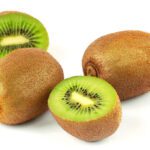
As a rabbit owner, you want to ensure your furry friend gets all the nutrients they need to thrive. One question that may come to mind is, “Can rabbits eat coconut?” This article will explore whether coconut is safe for rabbits and the potential health risks associated with feeding coconut to your pet.
No, rabbits can not eat coconuts. Because of their high sugar, fiber, vitamin, and mineral content, coconuts are nutrient-dense fruits that rabbits may find difficult to digest. As a result, you have to prevent your rabbit from approaching them.
The husk of a coconut is the only portion that rabbits can eat quickly that is because it contains less sugar and other nutrients compared to the white part of the coconut.
Because it contains too much sugar and fat for rabbits to digest fully, they should not consume coconut meat. Additionally, it may result in digestive problems, including diarrhea and bloating. As a result, we never recommend offering these to your bunnies.
As mentioned before, rabbits can not consume coconuts but benefit from coconut water and oil. While coconut oil is a beautiful source of lauric acid, which has anti-inflammatory and antibacterial effects, coconut water is a fantastic supply of electrolytes and hydration, a great option for the daily needs of your rabbits.
Dried coconut has a lot of sugar and fat, so rabbits shouldn’t be given it. The improper phosphorus-to-calcium ratio in processed foods might cause serious gastric problems in rabbits. Since they have trouble swallowing dried coconut, eating these kinds of foods is a risky venture for them.
Providing processed foods like dry coconut to rabbits is unsafe since they have trouble swallowing them.

For rabbits, coconut shells are too complicated. Consistently, your bunny won’t eat the coconut shell, but if it also has some coconut meat, your bunny might taste the sweet meat. As previously mentioned, coconut meat is nontoxic to rabbits, so you can provide it to them without worrying.
Coconut milk has a lot of sugar, which is unsuitable for your pet bunny. So, it’s better to avoid giving coconut milk to your bunny. Veterinarians for rabbits advise that rabbits only consume fresh, raw foods. Feeding rabbits coconut milk or any other processed food is restricted.
Rabbits, those fluffy and adorable creatures that hop around our gardens, have a surprising love for high-sugar foods. Unlike their wild counterparts who rely on a balanced diet of grasses and other plants, domesticated rabbits often have access to various sugary treats, from carrots to fruit. It’s not entirely clear why rabbits have such a sweet tooth, but some experts speculate that it may be due to their natural inclination towards foods that are high in energy. However, it’s important to note that while rabbits may enjoy these treats, they should still be consumed in moderation to maintain their overall health and well-being.
In addition to hay, fresh vegetables, and a small amount of fruit, rabbits can eat many other foods. Some of these include:
When feeding your rabbit new foods, it is essential to introduce them slowly and in small amounts. This will allow you to monitor your rabbit’s reaction to the food and ensure that it does not cause any digestive issues.
To avoid digestive and stomach problems, you should only feed your rabbit a limited amount of food at a time. Consult your veterinarian for guidance on the best approach to adding coconut to your rabbit’s diet before you do so.




